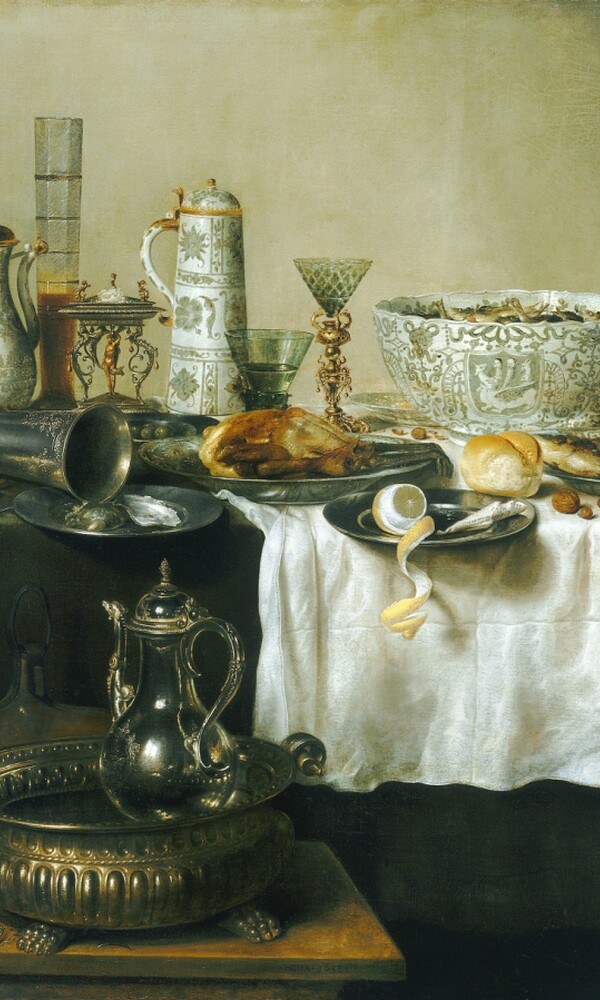Lavish bouquets of flowers, bloody roasts of venison, pewter goblets and skulls – for centuries, still lifes have fascinated artists and viewers alike, and their popularity continues to this day. From 6 June to 5 October 2008, the Hamburger Kunsthalle is presenting its major summer exhibition The Mirror of Secret Desires, which includes more than 150 works from five centuries. The core of the exhibition is formed by over fifty sensuous and opulent still-life paintings from the Baroque period. Together with still lifes by master painters such as Auguste Renoir, Claude Monet, Max Beckmann and Georges Braque, they enter into a dialogue with contemporary sculptures and installations by the likes of Mona Hatoum, Thomas Schütte, Jeff Wall, Jörg Sasse, Thomas Demand or James Hopkins, who follow in the great tradition of the still life.
The depiction of carefully arranged inanimate objects – from luxury goods up to dead animals such as game or fowl, fruits, flowers, treasures and curiosities – was a preoccupation of artists even in ancient times. The particular charm of this form of painting lies in the perfect illusion, the creation of remarkably lifelike images with paint, brushwork, composition and skilful lighting. There is a mysteriousness and peculiar sensuality about all still lifes that the exhibition sets out to explore.
Still lifes capture the gaze and stimulate the senses, but they also have an enigmatic quality. The objects often appear so lifelike that the viewer is almost tempted to pick them up. The exhibition aims to determine exactly how these images work – what lies behind this game of deception, illusion and perception and what significance do these artful arrangements of objects have for the viewer? Yet even knowing what the objects signify does not lessen the viewer’s pleasure in contemplating still-life images. It may be the sheer visual delight offered by optical illusions, deception and simulation that transports the viewer time and time again, or perhaps the pleasure of having one’s own secret desires mirrored. The exhibition in Hamburg places particular emphasis on the sensual and phenomenological aspects of the still life: the illusory effects, the play of mirrors, reflective glasses and fabrics, and the various strategies employed by the artist to manipulate the viewer’s perception.
Contemporary artists are by no means reluctant to address the time-honoured theme of overflowing shelves, dead animals and laid tables. On the contrary – ‘styled’ interiors displaying meaningful and symbolic objects continue to be a subject of great interest. Contemporary still lifes refer to changed modes of aesthetic perception and reception since modernism, and are increasingly used to explore new styles, materials and media.
In surprising juxtapositions, the contemporary sculptures and installations engage in a visual dialogue with the older paintings. Classical motifs such as richly laid tables, dead game animals or traditional vanitas symbols also appear in modern-day object worlds situated between everyday life and spirituality. James Hopkins’ installation Decadence and Demise – shelves filled with objects which would typically be found in a young person’s room and which – when seen from a distance – reveal the contours of a human skull – is a direct reminder of the transience of life and recalls the morbid charm of previous generations of still lifes.
With kind support of the exhibition by ECE and the exhibition catalogue by UNILEVER.
